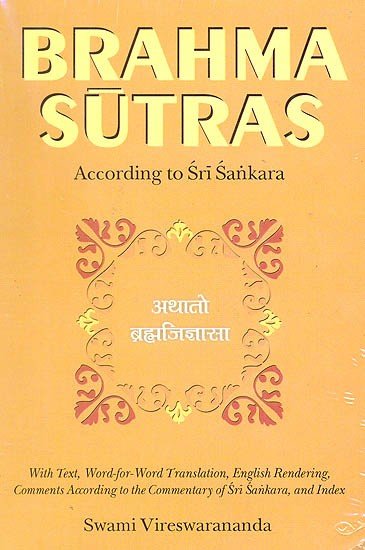Brahma Sutras (Shankara Bhashya)
by Swami Vireshwarananda | 1936 | 124,571 words | ISBN-10: 8175050063
This is the English translation of the Brahma-sutras including the commentary (Bhashya) of Shankara. The Brahma-sutra (or, Vedanta-sutra) is one of the three canonical texts of the Vedanta school of Hindu philosophy and represents an early exposition the Vedantic interpretation of the Upanishads. This edition has the original Sanskrit text, the r...
Chapter II, Section III, Adhikarana XV
Adhikarana summary: The soul is an agent only so long as it is connected with the Upadhis
Brahma-Sutra 2.3.40: Sanskrit text and English translation.
यथा च तक्षोभयथा ॥ ४० ॥
yathā ca takṣobhayathā || 40 ||
yathā—Even as; ca—and; takṣa— carpenter; ubhayathā—is both;
40. And even as a carpenter is both.
In the last Sutra the topic about the soul’s being an agent is established. Now the question is raised whether this agency is its real nature or only a superimposition. The Nyaya school holds that it is its very nature. This Sutra refutes it and says that it is superimposed on the soul and not real. For the Sruti declares, “This Atman is non-attached” (Brih. 4. 3. 15). Just as a carpenter suffers when he is busy working with his tools and is happy when he leaves off work, so does the Atman suffer when, through its connection with the Buddhi etc., it is active, as in the waking and dream states, and is blissful when it ceases to be an agent, as in deep sleep. All scriptural injunctions are with reference to the conditioned state of the Self. By nature it is inactive, and it becomes active only through a connection with its Upadhis (adjuncts), the mind etc. The objection that if the soul is not an agent by nature, the Sruti injunctions will be meaningless, does not stand, for these scriptures do not aim at establishing it, but merely refer to an agency already existing is a result of ignorance.
